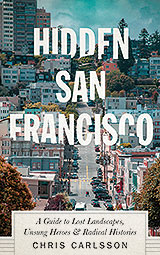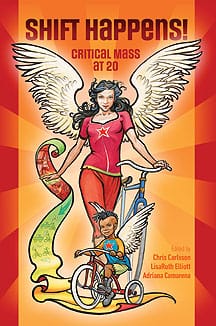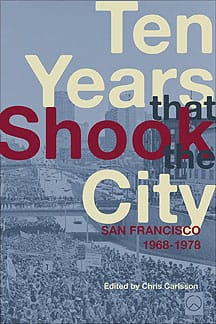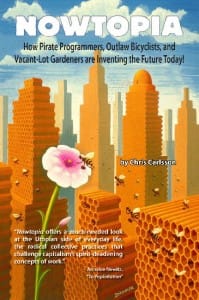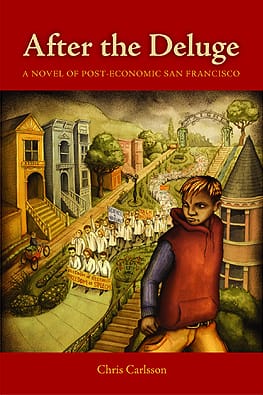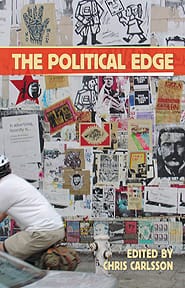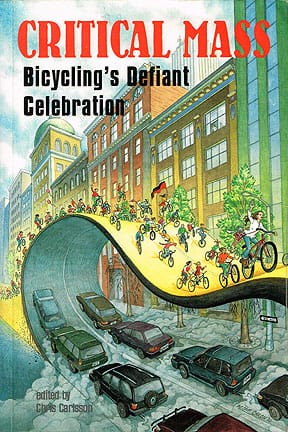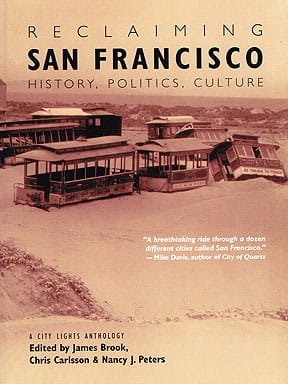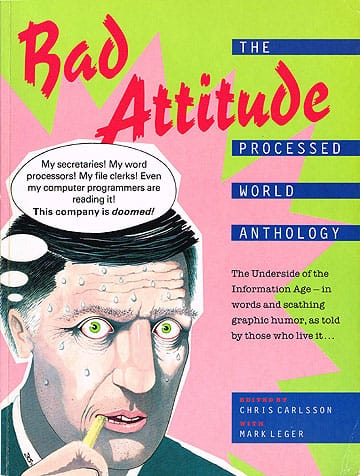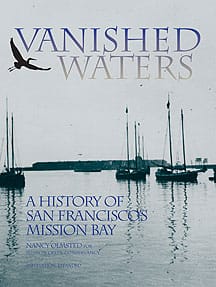Recent Posts
-
And Yet, We Go On
April 22, 2024
-
It IS Happening Here
February 16, 2024
-
General Ludd to General Intellect
January 11, 2024
-
Temporal and Geographic Edges
December 26, 2023
-
The Root of All Evil
October 13, 2023
-
Post-Pandemic Melancholia . . . Same As It Ever Was?
September 3, 2023
-
Chronicle of Deaths Foretold
June 24, 2023
-
Reparations is the Least We Should Do
May 11, 2023
-
We Are Not Alone
April 9, 2023
-
War and Anti-War
February 22, 2023
|
I spent Thanksgiving with a pleasantly boisterous and squishily affectionate gaggle of about 75 friends at an obscure box canyon resort called Saratoga Springs (not far from Ukiah or Clear Lake). It’s an annual event going on a decade now, and many of the friendships discovered there have been extended to our daily lives in the Bay Area, an ever-expanding community that feels a lot like an extended family.
Many of the participants understandably object to the whole amnesiac and gluttonous ritual known as ‘Thanksgiving,’ which has led us in each of the last two years to begin with a large group discussion. The “dark side” of Thanksgiving was aired out two years ago and this year the focus moved more broadly to questions of justice and our individual experiences of oppression. In both discussions an interesting dilemma emerged–when and how do our current choices and behaviors derive meaning from the past? In other words, does Thanksgiving have to carry the weight of genocide past, or can we collectively redefine it today as a convivial gathering and a brief long weekend of community and engagement?
Beneath this practical issue lurks ever-present concerns about noticing, responsibility, memory and history. Simply put, how can any of us ever enjoy a good meal with friends without simultaneously admitting that our prosperous and peaceful moment depends not only on centuries of genocide and slavery, but actually perpetuates real terror and barbarism right now, while we’re eating! We make political and practical choices all day long every day to ignore or at least skip over a very heavy history of violence and inhumanity that contributed crucially to our “peaceful” existence. How do we do that? Is it just a question of moral failure? I think not. There are intricate institutional and psychological mechanisms that have shaped our culture of irresponsibility, atomization and individualism.
Continue reading Memory and Responsibility
It’s finally cold here in San Francisco, after a bizarre stretch of almost two solid weeks of “real” summer (the kind we usually get at the end of September, but missed this year). I have been quite distracted these past weeks (yes, good weather makes it harder to sit at the keyboard) and not terribly inspired to write here. So I took a break. But today I’m feeling the itch, and I’m freezing, and Juan Cole gave me the impetus with his thoughtful comments on the current Sy Hersh story about the U.S. replacing ground troops with air power and his uncharacteristically hilarious attack on Bush:
I guarantee you, George, that historians are going to be unkind to you. You went into a major war over a non-existent nuclear weapons program. Presidents’ reputations don’t survive things like that. Historians are creatures of documents and precision. A wild exaggeration with serious consequences is against everything they stand for as a profession. So forget about history and destiny and the divine will. You are at the helm of the Exxon Valdez and it is headed for the shoals. You can’t afford to daydream about future decades.
It’s a common enough madness these days, to get lost in endless perambulations of the internet, from blog to blog, hopping around hoping for insight, humor, breaking news, what?… Somehow we’re in one of those irritating gaps between major events, and we’re all waiting with bated breath, knowing that the shit IS hitting the fan, but what color is it? Who’s throwing it? Who is getting it full in the face? It’s a version of gossip and celebrity fascination, albeit couched in terms of worldly affairs and history, news and politics.
I was turned on to a couple of blogs that are really outstanding: Firedoglake is by far the best place (if you have the time!) to keep up with all the breaking legal scandals engulfing the Cheney regime and its congressional allies. It’s written by three different former prosecutors so they have a helpful background and insider’s knowledge of how this stuff works. Effect Measure is another blog being written by 3 or 4 people on the topic of public health, and proves to be one of the more sensible, challenging, and sober places to keep track of pandemic news, crumbling public health infrastructure, and all the thoughts that pro health care folks are having in the midst of that.
I don’t think either of these two blogs, nor the other regulars (billmon, Juan Cole, Global Guerrillas, all linked at right), are gossipy per se, but there is a way that the recycling of news reports and current events fills my hours and is precisely analogous to how other people read People magazine or watch daytime TV or… I also read a huge pile of magazines, not closely, but again it takes up some serious hours every week (The Economist, Harpers, New Yorker, NY Review of Books, Mother Jones, Earth Island Journal, Bay Nature, Orion, Left Business Observer, Nat’l Geographic, even had the Financial Times coming for a few weeks–yeesh!).
I’m also deep into writing the next book, a project that promises to stretch out well into next year just to finish a first draft. A lot of the delay in writing it comes from finding so many spots that I feel I need to read one or more books I have or have heard of, before I can finish my own thinking on the topic. That’s a lot of fun, intellectually, but it just takes time. And not all my reading is instrumentally focused on my writing needs, so taken as a whole, my 20-40 hours a week of reading are a luxury and a necessity and an indispensable foundation and a huge waste of time!
I just found a very sensible post at H5N1 that in turn links to another website with good advice on what to do in case of bird flu. In general, it proposes a decentralized, robust system of public health to respond to all kinds of public health disasters, rather than overly focusing on stockpiling antivirals for this one flu… The more I’ve thought about this stuff, the more I realize how woefully unprepared “we” are, and how urgently we need to fight for a public health infrastructure that can actually provide real services in time of crisis. Which means a high level of redundancy in normal times… interesting that San Franciscans voted to keep open all the firehouses in last week’s local election… it’s the same logic. You don’t need all these firehouses in normal times, but when you need ’em you better have ’em. And this is, after all, a predominantly wooden city, built on a huge fault zone running pipes full of natural gas and other chemicals all over the place… As O’Reilly condemns the city for its common sense votes on war recruiting and handguns (if only banning hand guns would curb gun violence! sheesh!), the actual story of the local election is much more practical. If we do get attacked, whether by humans or by nature, maybe with a public health infrastructure to match our fire readiness, we’ll have a reasonable chance of taking care of ourselves… I guess I must be a commonist!
|
|


